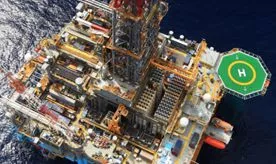Barge & MOU Courses – Ukraine

The Nautical Institute.
 |
Such MOUs include at least the following:
- column-stabilized unit is a MOU with the main deck connected to the underwater hull or footings by columns or caissons;
- non-self-propelled unit is a MOU not fitted with mechanical means of propulsion to navigate independently;
- self-elevating unit is a MOU with movable legs capable of raising its hull above the surface of the sea;
- self-propelled unit is a MOU fitted with a mechanical means of propulsion to navigate independently;
- submersible unit is an MOU with a ship-shape, barge-type or novel hull design (other than a self-elevating unit) intended for operation while bottom bearing;
- surface unit is a MOU with a ship- or barge-type displacement hull of single- or multiple-hull configuration intended for operation in the floating condition.
As per resolution A.1079(28), every company employing personnel assigned to duty on MOUs has responsibility for ensuring that the standards set out in these recommendations are given full and complete effect. In addition, other measures as may be necessary should be taken to ensure that personnel can make knowledgeable and informed contributions to the safe operation of the MOU.
Every MOU should have sufficient key persons on board possessing the knowledge, qualifications, skills and experience necessary to ensure the safe operation of the MOU. It is recognized that the nature of MOUs and their operations necessitate the consideration of specialized training and qualifications. The Administration should determine the adequacy of the knowledge, qualifications, skills and experience of the personnel assigned the responsibility for essential safety and pollution prevention functions on the basis of the design, type, size, and operating parameters of each MOU. Administrations are invited to consider the essential functions listed below in determining the necessary knowledge, qualifications, skills and experience for key personnel.







